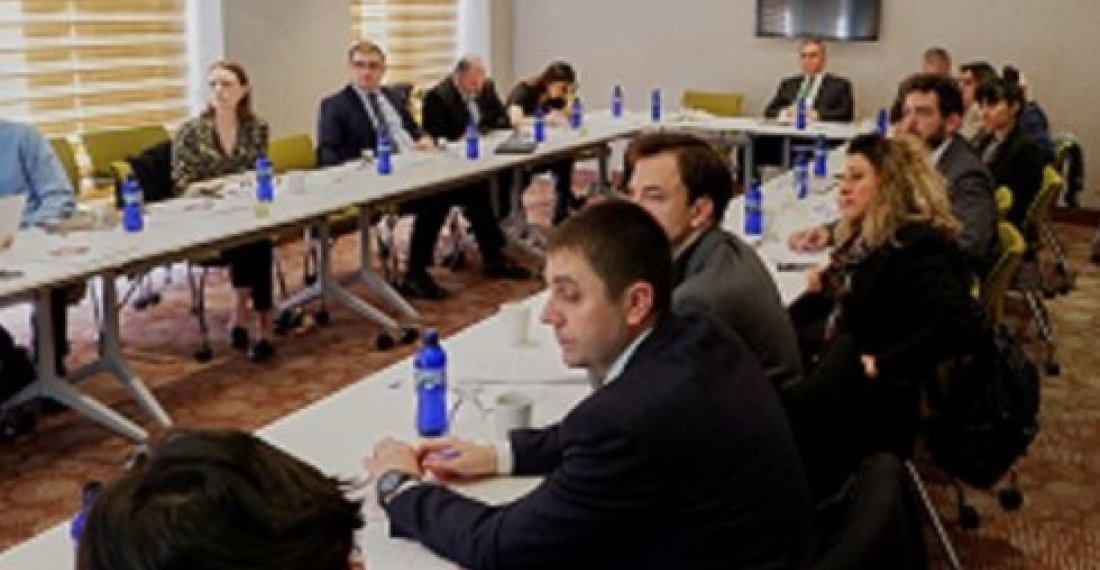Participants at a regional meeting of stakeholders held in Tbilisi on Friday (28 February) agreed to intensify efforts to raise awareness of the problem of landmines and to improve understanding of the provisions of the Ottawa Convention
The quest to eliminate the scourge of landmines in the South Caucasus can be achieved this decade if there is adequate political commitment by governments, proper public awareness, and enough resources allocated through state budgets and international donors. This was the conclusion of a regional information exchange meeting held in Tbilisi on Friday 28 February, with the participation of various government agencies, demining agencies, international organisations and diplomatic missions and think tanks and civil society groups. The meeting was organised by LINKS Europe in the framework of its ongoing campaign Landmine Free South Caucasus, with the support of the European Union.
The guest speaker at the event was Juan Carlos Ruan, Director of the Geneva-based Implementation Support Unit of the Anti-Personnel Mine Ban Convention, also known as the Ottawa Convention. The Convention has been signed by more than 160 countries, but the three South Caucasus countries are among the 33 countries world-wide that have yet to do so.
During the discussions at the event the importance of making the Convention better known and better understood in the region was emphasised, as well as the need to remain fully engaged with the three governments on the matter.
related content: The Ottawa Convention Matters!
Participants heard reports about on-going efforts at mine clearance in the South Caucasus. Participants felt that while there were still large areas in the region that were mined, landmines in the South Caucasus could be eradicated by the end of the decade given the right conditions. Participants in the meeting agreed to intensify their efforts to achieve this, and highlighted the value of a regional approach in dealing with this humanitarian objective.
The meeting assessed positively the work of the campaign Landmine Free South Caucasus held in April 2019. It was decided to build on this work with a new awareness raising campaign in 2020. This year's campaign will start on 4 April, which is International Mine Awareness Day, and will be spread over three months. Participants highlighted the importance of involving the victims of landmines in campaign activities, the need to recognise the efforts of those working in demining agencies across the region, and the importance to provide proper information on the Ottawa Convention and its implementation as part of the campaign's efforts.
At the end of the meeting "Landmine Free South Caucasus - the next steps" participants thanked LINKS Europe for its co-ordinating efforts.
Among those present at the meeting were representatives of the Ministry of Foreign Affairs of Georgia, DELTA - The State Military-Scientific Technical Centre of Georgia, The Centre for Humanitarian Deming and Expertise of Armenia, The Caucasus Policy Analysis Centre of Azerbaijan, The HALO Trust, The International Committee of the Red Cross, The European Union Monitoring Mission in Georgia, The NATO Liaison Office in Tbilisi, The Europe-Georgia Institute, as well as representatives of the Embassies of Germany, the Netherlands, Greece, the United Kingdom, Sweden and Ukraine.
source: commonspace.eu
photo: Some of the participants at the Regional Information Exchange Meeting "Landmine Free South Caucasus - the next steps" held in Tbilisi on 28 February 2020.






